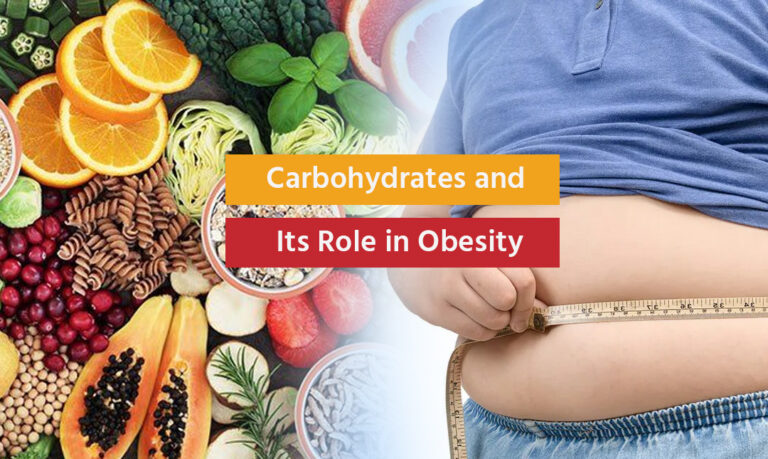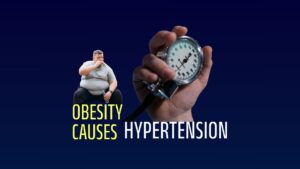
Vidhi Dave
Bariatric Dietician & Content Writer
Carbohydrates and Its Role in Obesity

Everything required for optimum functioning cannot be produced by the human body on its own. Because food provides us with the best nutrients, eating is necessary. When it comes to vital bodily processes like growth, healing, and maintenance, our bodies require certain molecules called nutrients. It is necessary for us to get and sustain maximum health that we ingest many important nutrients through our diet. You can further categorize these nutrients into macronutrients and micronutrients.
Macronutrients: What are they?
Macro is the word for huge, and that’s where their name comes from. When it comes to providing the body with the energy (calories) it needs, macronutrients are those that are needed in big quantities. Four key macronutrients are essential for good health:
- Carbohydrates
- Protein
- Fat
- Water
In the form of calories, macronutrients also provide energy. Though your body can also utilize other macronutrients if necessary, carbohydrates are the primary source of energy.
Which macronutrient has the most calories?
Carbs: 4 calories per gram
Protein: 4 calories per gram
Fat: 9 calories per gram
What are Carbohydrates ?
Among the three primary sources of energy for our body one of them is carbohydrates. Because they are composed of carbon, hydrogen, and oxygen at the chemical level, they are referred to as carbohydrates.
So during school or during college we all have learned about the types of carbohydrates. Basically Carbohydrate is majorly divided into 2 main types Simple
And Complex carbohydrates
- Simple Carbohydrate: Simple sugar is made up of 2-3 sugar units. Sometimes they are also known as Sugar or Simple Sugar. There are 2 main types: Monosaccharide and Disaccharide. As the name suggests Monosaccharide means 1 unit of sugar.
There are 3 monosaccharide i.e
Glucose
Fructose
Galactose
Another type of simple carbohydrate is Disaccharide which has 2 units of sugar. There are 3 disaccharide which are maltose, sucrose and lactose, which are made up of a combination of 2 monosaccharides .i.e
Maltose (glucose + glucose)
Sucrose (glucose + fructose)
Lactose (glucose + galactose)
2) Complex carbohydrates: They are made up of many sugar units. They are also called polysaccharides. There are 3 main types of polysaccharides.
Starch
Glycogen
Fiber
- Complex carbohydrates: They are made up of many sugar units. They are also called polysaccharides. There are 3 main types of polysaccharides.
Starch
Glycogen
Fiber
How much and which carbohydrate to consume?
According to the Dietary Guidelines, for a balanced diet, carbs should make up 45 to 65% of total calories, while added sugars should not make up more than 10% of total calories. Due to excessive protein and fat intake, a diet low in carbohydrates can lead to constipation, gout, and, in extreme situations, renal failure and kidney stones. Malnutrition can result from eating too many carbohydrates since the body will consume less fat and protein.
Foods that are mostly made of simple carbohydrates are referred to as “bad” carbs. These foods include sugar-filled beverages and refined carbohydrates like cakes, cookies, and white bread that have added sugar. Some dietitians refer to this phenomenon of blood glucose spikes, or “blood sugar roller coaster,” as a result of simple carbs’ quicker digestion and subsequent blood glucose rise. The “sugar crash” is brought on by an immediate insulin response to sugar increases that rapidly lowers excess blood glucose and converts it to stored fat. Fatigue and mood swings are other consequences of sugar crashes. In addition, they delay the onset of hunger, which increases the risk of overindulging and gaining weight.
Mechanism Of Action behind Carbohydrate -
All carbs in food eventually convert to glucose once ingested, which is then carried by the bloodstream to the cells where it is used to produce energy.
Glucose is stored in the body as glycogen in the skeletal muscles and liver when it is not needed right away.
When you exercise, your glycogen stores give you energy, and they are refilled after a carb-rich meal. Glycogen stores may get saturated in individuals who consume excessive amounts of carbs. When this occurs, the body stores extra energy as fat for long-term use, which results in weight gain. This energy is derived from carbs. On the other hand, the body will use protein as fuel if you don’t ingest enough carbohydrates or store enough of them, which will cause you to lose muscle, which is not good.
So when we say or always blame that fat is responsible for weight gain, we also need to keep in mind that carbohydrate rich food which means more sugar or refined foods which has absolutely no fiber can also lead to weight gain and it’s more dangerous and harmful than fat itself. Eventually weight gain can lead to being overweight and then it leads to obesity which is the main culprit for all the underlying conditions like heart diseases- hypertension, Diabetes, Sleep Apnea, etc.
If you are obese or have a BMI more than 30 than for you. Bariatric Surgery is the only line of treatment. Aastha Bariatric is the Centre of Excellence.Aastha Bariatrics is committed to use the science of healing to help people who are overweight or obese maintain and enhance their quality of life. By offering excellent, individualized medical treatment with compassion, dignity, and respect for patients, this wellness center is dedicated to enhancing community health.
Aastha Bariatric is the Centre for Metabolic and Bariatric surgery. At Aastha Bariatric, we provide our patients with comprehensive information about bariatric surgery, including its risks, benefits, the recovery process, and what they can expect post-surgery. Our commitment is to be compassionate, patient, available, informative, and supportive advocates for our patients throughout their bariatric surgery experience.





